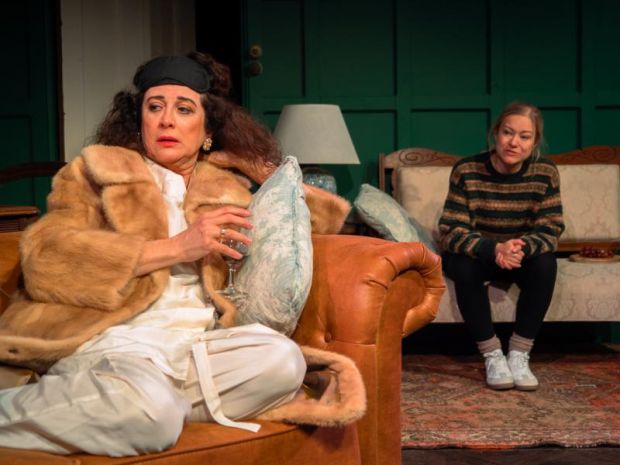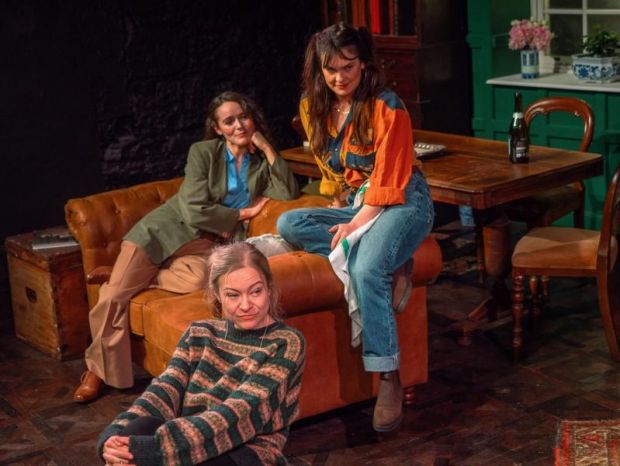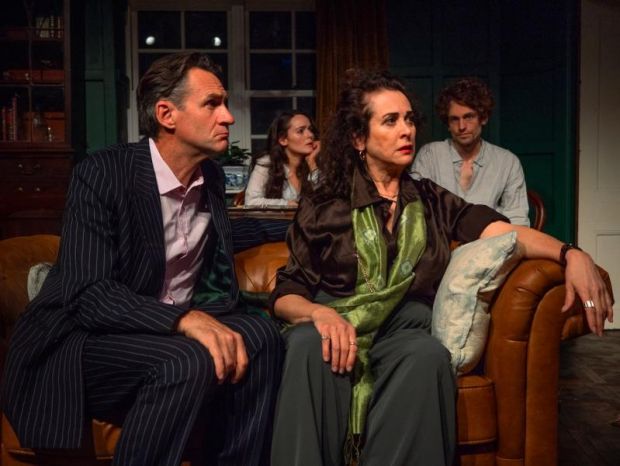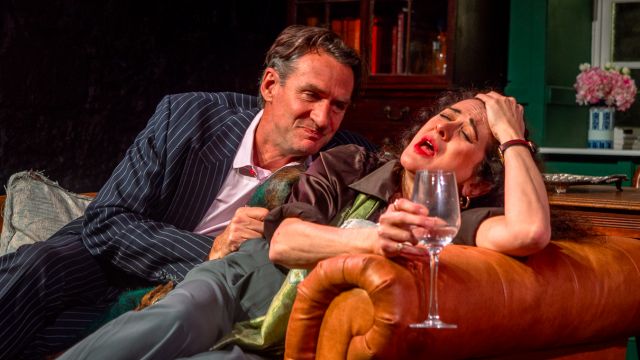The Cherry Orchard
Welsh playwright Gary Owen sets his compelling version of Chekhov’s The Cherry Orchard in his homeland, in a crumbling family home and orchard looking out over the Atlantic. It’s 1982 and back in London Margaret Thatcher’s neo-liberal government is riding high on the nationalistic fervour of snatching back the Falklands.

It’s not Russia 1905 but change is still afoot; Owen’s seven characters are each deepened by an affecting resonance of their Chekhov originals.
Deborah Galanos excels as the sodden matriarch, who escaped to London heavy with grief over a dead son and husband, but now reluctantly staggers back to her unloved daughters because the family seat must be sold. Her snobbery and quips at their expense are hilarious.

These 1980s women have a few more life options than the feeble ones of their Russian forebears. With her timidity and powerless glares Valerie (Jane Angharad) is perhaps closest to Chekhov, moping for the love of Lewis (Dorje Swallow), whose grand-dad was once thrown off this land, but now as an industrious developer schemes to purchase it. In this class battle, Owens exploits the historic resentment of Welsh workers against the British, their opposing accents adding drama (and comedy) to the clash.
The other sister, Anya (Amelia Parsonson) is at a privileged British university, apparently gay and partnered to a wealthy woman, but not above a summertime fling with the local unemployed Welsh Trotskyite (finely played by James Smithers). The delicious impudence of Talia Benatar as the long-time Welsh maid, who is finally abandoned, is masterfully done. And Charles Mayer is perfectly unworldly as the ineffectual uncle.

Director Anthony Skuse evokes great authenticity and detail from his accomplished cast; James Smither’s comfortable living room design, pushing the Old Fitz stage out to its limits, displays the same truth.
Martin Portus
Photographer: Braiden Toko
Subscribe to our E-Newsletter, buy our latest print edition or find a Performing Arts book at Book Nook.

